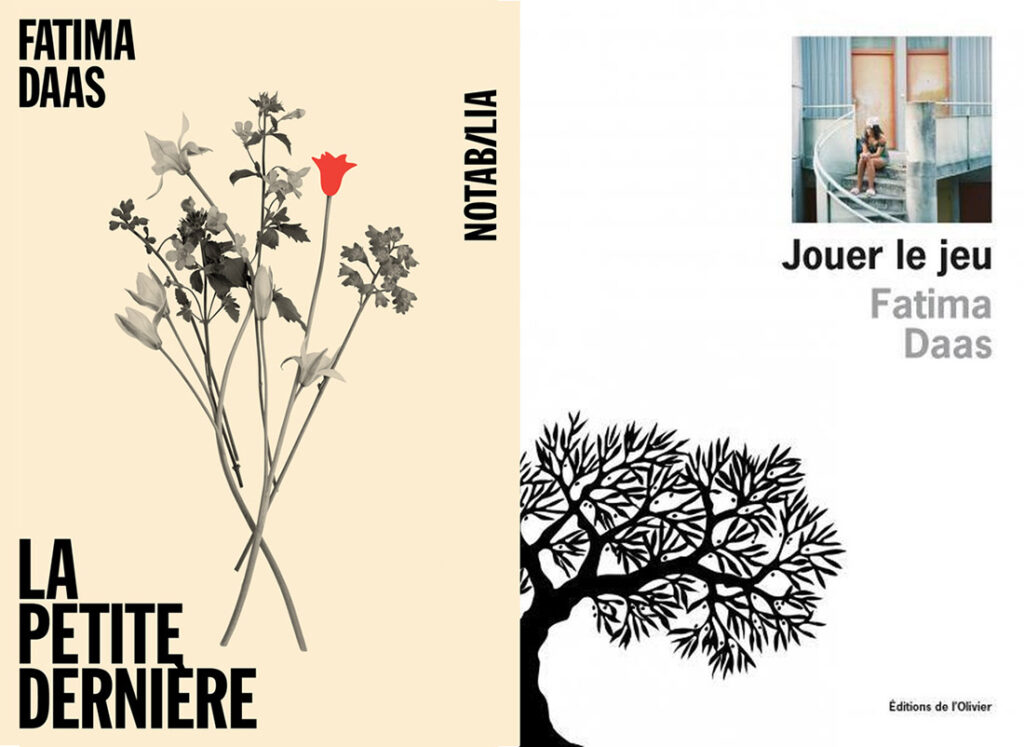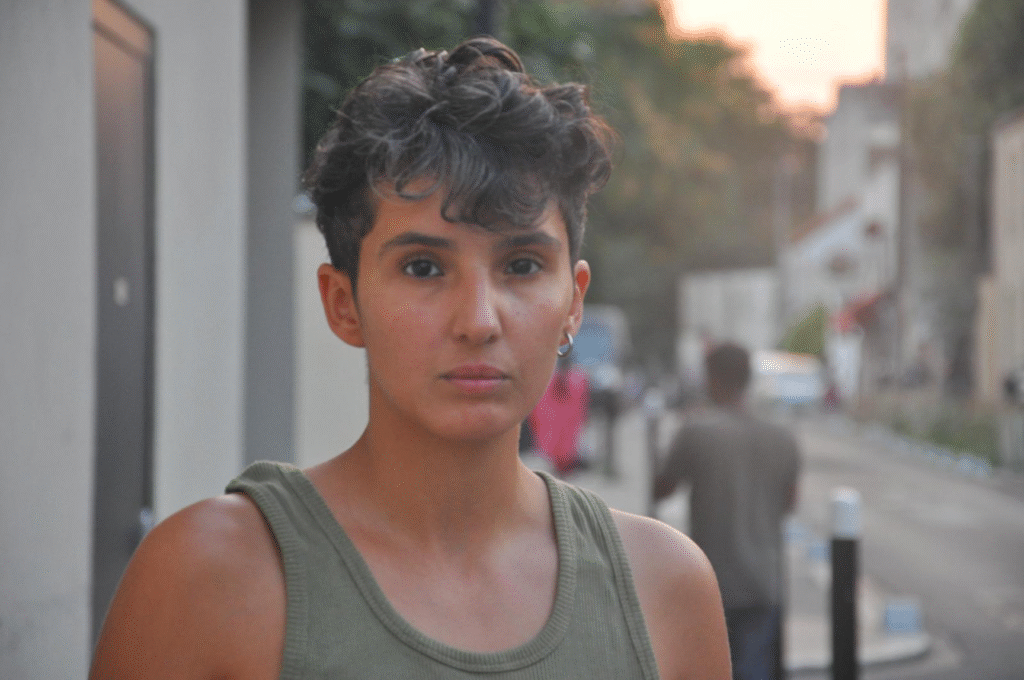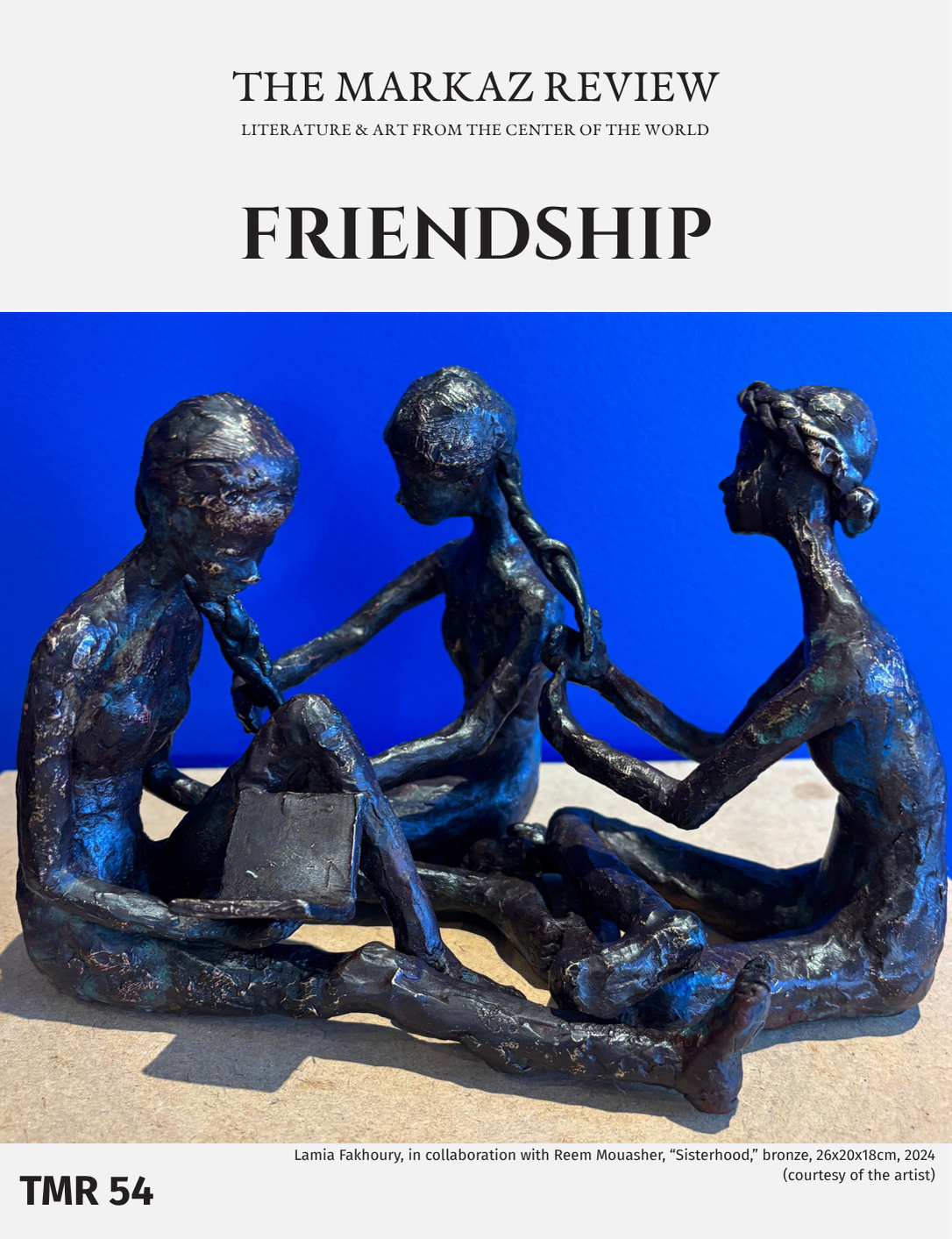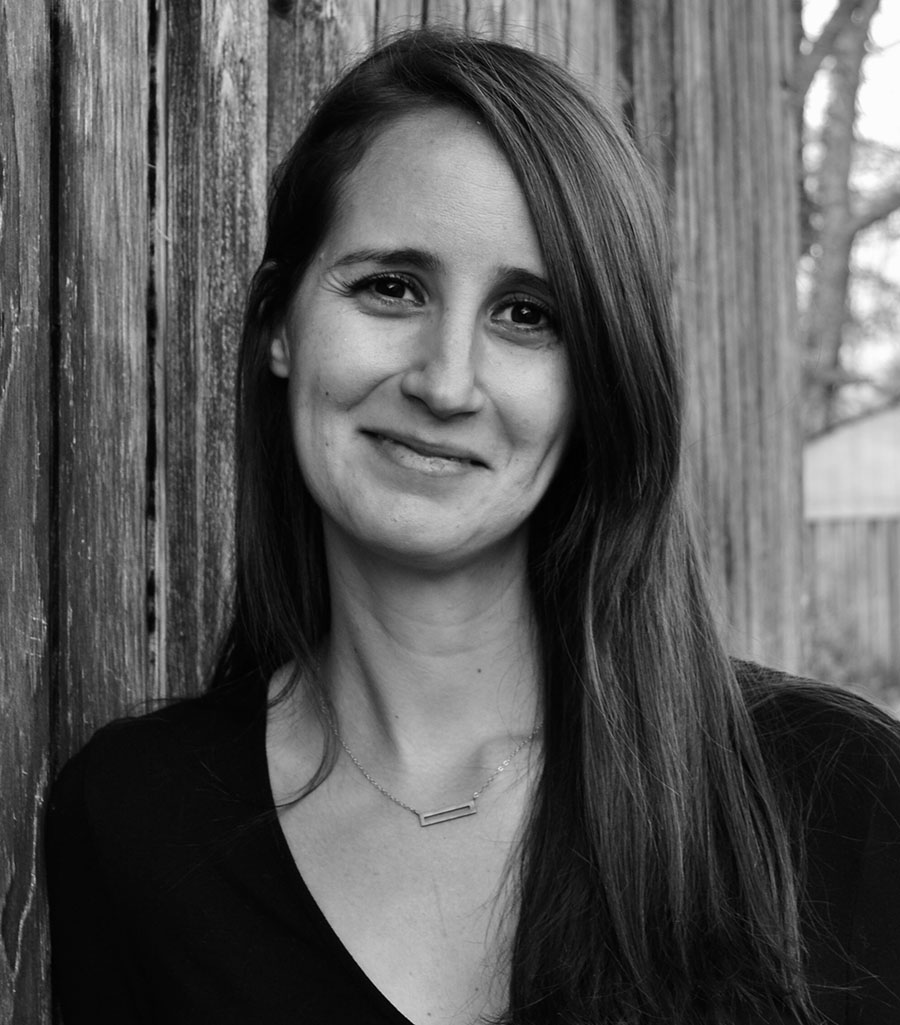Fatima Daas is not really Fatima Daas. The moniker is a pen name adopted by the French-Algerian writer who burst onto France's literary scene in 2020.
Fatima Daas’ literary debut, a work of autofiction entitled La petite dernière (The Last One), garnered critical acclaim and a blurb from no less than French literary superstar Virginie Despentes. Written in sparse prose, each chapter beginning with the same refrain – My name is Fatima Daas – the book was an unlikely success. “Unlikely” because it refused to indulge in the kinds of binaries or absolutes for which French authors of Arab origin are historically rewarded by both the literary establishment and mainstream media (e.g., Western vs. Arab, queer ≠ Muslim, etc.). The Last One earned Daas, who was only 25 when the work was published in France, media buzz, a new, eager readership, and literary exportation abroad.
Daas published her highly anticipated follow-up this fall, Jouer le jeu (Play the Game), which was excerpted in our FRIENDSHIP issue. The book covers similar ground – growing up a queer Muslim teenager in the cité – but is more firmly anchored in fiction. In the same way that Fatima Daas is not Fatima Daas, the novel’s young protagonist, Kayden, is not the author. Though there are parallels. Daas was born in France to Algerian parents, and grew up in the banlieues of Paris like Kayden. As an adolescent, she too found herself grappling with questions of faith (Islam) and sexuality (queerness). As Daas herself has said, a few times actually, her books aren’t meant to be queer stories, or Muslim stories, or – as the French press love to emphasize – Muslim-and-queer stories, but stories that can appeal to anyone. If they speak to you, all the better. Amidst a busy press tour for Play the Game, Daas took the time to talk to TMR, via email.

TMR: On the surface, Play the Game is a “coming-out” novel, as well as a story of exclusion, or rather, categorization. However, it’s also a story of friendship, isn’t it? The relationships are so strong and moving, and mainly, familiar! That feeling from high school that our friends are our entire universe, and thankfully so… This aspect reminded me of a similar dynamic in your first novel, The Last One, and the best friend character, Rokya. Can you tell us about your decision to incorporate and emphasize these bonds of friendship in Play the Game?
FD: I created teenagers who care. . . loving and tender teenagers. Each character has their own story, every character experiences life differently, with issues specific to them. They all have their respective individuality. But when they’re together, they form a unity – a group whose members understand and listen to and truly see one another.
I believe very strongly in friendship as a refuge against the violence of the world.
My characters are forced to come together to protect themselves from an academic system that categorizes, shapes, and separates them, that discriminates against them, that crushes them. They don’t get much love or respect inside the school walls, so they have to provide it to each other, twofold, in order to hold strong. This is their way of resisting the injustice and discrimination they experience in the classroom, but also, more broadly, in French society.
I believe very strongly in friendship as a refuge against the violence of the world. I think the most important thing is not to be alone, not to feel alone. As Kayden says, “showing that anger is shared can sometimes save a life.”
TMR: Staying with The Last One, that novel also explored a critical transition period in life, namely those delicate years in your twenties when you’re figuring out relationships, sex, and love, when you’re realizing your parents don’t have all the answers, when you start questioning faith and religion, what you “should” and “shouldn’t” do. Play the Game transports the reader a little further back in time, to adolescence with all its uncertainties and fears, joys and insouciance. Did you find it cathartic to return to that age? Violent? Troubling? When you were writing this novel, were you already thinking about how it would be received, perhaps by readers in that age group?

FT: I found the writing to be both difficult and fluid. The most troubling part was forcing myself to confront a period in the past, one of vulnerability and extreme fragility. The experience of putting myself in a teenager’s skin was intense. Feeling shame, grief, and rage as if I was living the lives of one of those teenagers without any solution to offer them. But I also took great pleasure in creating these characters who came out of post-colonial immigration and [France’s] quartiers populaires, in showing their solidarity and kindness, their tenderness and love. I wanted to recreate the banality of their daily lives, the issues they grappled with, the conversations, the way they tease each other, their laughter. To restore their dignity and their humanity.
When I write, I’m in a bubble. I’m not necessarily thinking about the reception [of a work]. Obviously, I’m in dialogue with my readers but I try to write with as much freedom as possible. I’m concentrating on how to say what I want to say in the most precise way possible, rather than on how it will be received. Though, I would be honored if this book touched teenage readers.
TMR: What I love about your writing – as a reader but also a translator – is its sparseness, the simple poeticism. French is a more elegant language than English in certain ways, but sometimes it can get cluttered or weighed down by metaphors. I imagine this sparse, subdued writing is your natural style, but I wonder how it has evolved. Were you encouraged or vice versa, discouraged from this style?
FD: For Play the Game, I wanted to play the game of fiction. And the thing that helped me enter that fictional sphere was writing in the third person singular. Kayden is a taciturn character, who observes a lot. So I also wanted to incorporate an “I” – the I of the character’s diary, which gives her a place of freedom to share her thoughts and feelings.
When I write, I want it to feel true, real, honest. [Fatima’s emphasis.] Which means creating dialogues and playing with orality, while also incorporating more narrative passages. I like to get right down to it, get into something more direct, rawer. Delete sentences that say too much. I’d rather suggest than say.
Obviously, I’m in dialogue with my readers but I try to write with as much freedom as possible.
TMR: Your first book was translated into multiple languages, and made into a film by director Hafsia Herzi. Can you tell us about that experience of being translated, be it literary or cinematographic translation, or both ? Was it collaborative? Did you have the feeling of giving up possession, insofar as one can “possess” a story or book, to another kind of artist?
FD: I think that pretty quickly, I was very enthused by the idea of my book crossing continents, and that it would also belong to other readers, not only Francophone ones. I loved seeing how it was received in other countries. As for the film, once the book was published, it no longer belonged to me. I was overjoyed that someone else was taking it over and adapting it to the screen. Hafsia filled in holes, readapted things, and added her perspective, all while respecting the story of the Fatima character. I was happy to discover another possible version of the book.
TMR: A writing teacher once told me that all books should be in conversation with other books or other writers. Who or what do you hope or believe to be in conversation with?
FD: I hope that my works are in dialogue with the books of Mehdi Charef, Faïza Guène, Jeanette Winterson, Annie Ernaux, Marguerite Duras, and Abdellah Taïa.
TMR: When I finished reading Play the Game, the predominant feeling I had was of a broken heart, though who knows whose – the heroine, mine, everyone’s? – but in a good way. How did you feel when you typed that final sentence, hit Ctrl+S, and knew that the book was done?
FD: I was happy to have gotten through the whole book, despite the difficulties it entailed. A feeling of reaching peace. And at the same time, the feeling that a book is never truly finished. So I think that means I need to write another one.
TMR: As a bonus, could you recommend a few songs for our readers? A mini-playlist to accompany them as they read the excerpt from Play the Game…
Listen to Fatima Daas’ playlist











